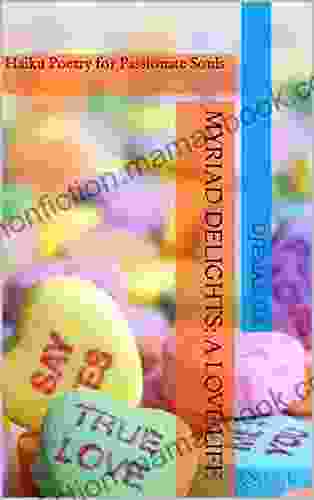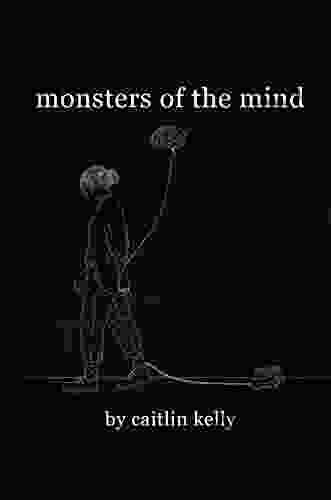Haiku Poetry for Passionate Souls: A Comprehensive Guide to the Art of Japanese Short Form Poetry

In the realm of poetry, where words dance and emotions unfurl, there exists a form of verse that captivates with its brevity and profound impact. Haiku, an ancient Japanese poetic tradition, has enthralled readers for centuries with its ability to encapsulate a moment, evoke a feeling, or paint a vivid image with just a few carefully chosen words.
Haiku poetry, with its origins in 17th-century Japan, is characterized by its concise structure and adherence to certain conventions. Traditionally, a haiku consists of three unrhymed lines: the first line contains five syllables, the second line contains seven syllables, and the third line returns to five syllables. This 5-7-5 syllable pattern creates a rhythmic flow that adds to the poem's impact.
Beyond its structure, haiku poetry is renowned for its focus on nature and the present moment. Haiku poets strive to capture the essence of a fleeting experience, often turning their attention to the beauty and wonder of the natural world. Through vivid imagery and sensory details, they aim to create a vivid snapshot that transports readers directly into the heart of the moment.
4.1 out of 5
| Language | : | English |
| File size | : | 1465 KB |
| Text-to-Speech | : | Enabled |
| Screen Reader | : | Supported |
| Enhanced typesetting | : | Enabled |
| Word Wise | : | Enabled |
| Print length | : | 75 pages |
| Lending | : | Enabled |
The roots of haiku can be traced back to the ancient Japanese poetic form known as "tanka." Tanka poems consisted of five lines, with the first and third lines containing five syllables, the second and fourth lines containing seven syllables, and the final line returning to five syllables. Over time, tanka poems evolved into shorter forms, and by the 17th century, the three-line haiku had become a distinct genre.
One of the most influential figures in the development of haiku was the poet Matsuo Bashō (1644-1694). Bashō is credited with elevating haiku from a simple poetic form to a respected art form. He emphasized the importance of observation, simplicity, and the use of "kireji," or cutting words, that create a sense of separation and tension within the poem.
Crafting a successful haiku requires both skill and inspiration. While the 5-7-5 syllable pattern provides a framework, it is the poet's ability to capture a moment, evoke an emotion, or paint a vivid image that truly sets a haiku apart.
Here are a few key elements to consider when writing a haiku:
- Observation: Haiku poets are keen observers of the world around them. They pay attention to the details of nature, the changing seasons, and the subtle shifts in human emotion.
- Simplicity: Haiku strives for simplicity and directness. Poets avoid using complex language or excessive imagery, instead opting for clear and concise language that allows the reader to experience the moment firsthand.
- Kireji: Kireji, or cutting words, are an essential element of haiku. These words create a sense of separation within the poem, adding a layer of tension or surprise. Common kireji include words like "but," "and," "yet," and "suddenly."
- Nature: Nature is a central theme in haiku poetry. Poets often use nature to evoke emotions, create a sense of place, or explore the relationship between humans and the natural world.
- Present moment: Haiku is all about capturing the present moment. Poets strive to freeze a fleeting experience in time, allowing the reader to share in the joy, wonder, or sadness of that particular moment.
Over the centuries, haiku has had a profound impact on literature, art, and culture. It has been translated into numerous languages and has inspired countless poets, writers, and artists around the world.
In Japan, haiku remains a popular and respected poetic form. Haiku contests and festivals are held regularly, and haiku are often used in calligraphy and other art forms.
Beyond Japan, haiku has influenced Western literature, particularly in the 20th century. Ezra Pound, T.S. Eliot, and other modernist poets were drawn to haiku's brevity, simplicity, and focus on the present moment. Haiku has also been embraced by contemporary poets, who continue to explore its possibilities and push its boundaries.
Haiku poetry, with its timeless beauty and profound impact, continues to captivate readers around the world. By observing the world with keen eyes, capturing fleeting moments, and expressing emotions with simplicity and directness, haiku poets invite us to experience the beauty and wonder of the world around us.
Whether you are a seasoned haiku enthusiast or new to this enchanting poetic form, may you find inspiration and joy in the world of haiku. Let the beauty and simplicity of these short verses touch your soul and ignite your passion for the written word.
4.1 out of 5
| Language | : | English |
| File size | : | 1465 KB |
| Text-to-Speech | : | Enabled |
| Screen Reader | : | Supported |
| Enhanced typesetting | : | Enabled |
| Word Wise | : | Enabled |
| Print length | : | 75 pages |
| Lending | : | Enabled |
Do you want to contribute by writing guest posts on this blog?
Please contact us and send us a resume of previous articles that you have written.
 Top Book
Top Book Novel
Novel Fiction
Fiction Nonfiction
Nonfiction Literature
Literature Paperback
Paperback Hardcover
Hardcover E-book
E-book Audiobook
Audiobook Bestseller
Bestseller Classic
Classic Mystery
Mystery Thriller
Thriller Romance
Romance Fantasy
Fantasy Science Fiction
Science Fiction Biography
Biography Memoir
Memoir Autobiography
Autobiography Poetry
Poetry Drama
Drama Historical Fiction
Historical Fiction Self-help
Self-help Young Adult
Young Adult Childrens Books
Childrens Books Graphic Novel
Graphic Novel Anthology
Anthology Series
Series Encyclopedia
Encyclopedia Reference
Reference Guidebook
Guidebook Textbook
Textbook Workbook
Workbook Journal
Journal Diary
Diary Manuscript
Manuscript Folio
Folio Pulp Fiction
Pulp Fiction Short Stories
Short Stories Fairy Tales
Fairy Tales Fables
Fables Mythology
Mythology Philosophy
Philosophy Religion
Religion Spirituality
Spirituality Essays
Essays Critique
Critique Commentary
Commentary Glossary
Glossary Bibliography
Bibliography Index
Index Table of Contents
Table of Contents Preface
Preface Introduction
Introduction Foreword
Foreword Afterword
Afterword Appendices
Appendices Annotations
Annotations Footnotes
Footnotes Epilogue
Epilogue Prologue
Prologue Peter Richardson
Peter Richardson Ian Sansom
Ian Sansom Matt Burns
Matt Burns Gail Damerow
Gail Damerow Michael Collins
Michael Collins David Brunner
David Brunner Emily Josephine
Emily Josephine Kay Gardner
Kay Gardner Yolanda Sealey Ruiz
Yolanda Sealey Ruiz Jack Daniels
Jack Daniels Christina Hoag
Christina Hoag Dave Aikins
Dave Aikins Daniele Benedettelli
Daniele Benedettelli I R Womack
I R Womack Osip Mandelstam
Osip Mandelstam Andy Bull
Andy Bull Peter Midgley
Peter Midgley D H Lawrence
D H Lawrence William Burke
William Burke Winter Travers
Winter Travers
Light bulbAdvertise smarter! Our strategic ad space ensures maximum exposure. Reserve your spot today!

 Deion SimmonsThe Ultimate Guide to Crocheting an Easy Scarf: Step-by-Step Instructions for...
Deion SimmonsThe Ultimate Guide to Crocheting an Easy Scarf: Step-by-Step Instructions for...
 Gary ReedThe Fascinating World of PhD Students: A Comprehensive Guide to Their Journey...
Gary ReedThe Fascinating World of PhD Students: A Comprehensive Guide to Their Journey... Andrew BellFollow ·12.5k
Andrew BellFollow ·12.5k Richard SimmonsFollow ·8.4k
Richard SimmonsFollow ·8.4k Isaac MitchellFollow ·3.5k
Isaac MitchellFollow ·3.5k Isaac AsimovFollow ·6.5k
Isaac AsimovFollow ·6.5k Hugh ReedFollow ·17.1k
Hugh ReedFollow ·17.1k Bret MitchellFollow ·11.9k
Bret MitchellFollow ·11.9k F. Scott FitzgeraldFollow ·10.7k
F. Scott FitzgeraldFollow ·10.7k Jorge AmadoFollow ·9.4k
Jorge AmadoFollow ·9.4k
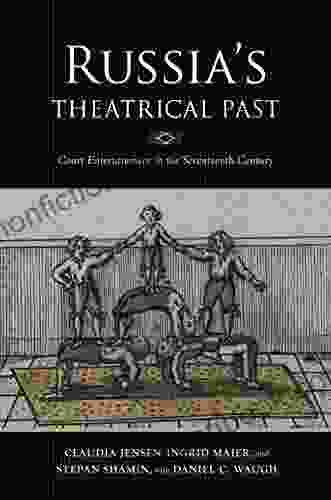
 Steve Carter
Steve CarterUnveiling the Rich Theatrical Tapestry of Russia: A...
Origins and Early...
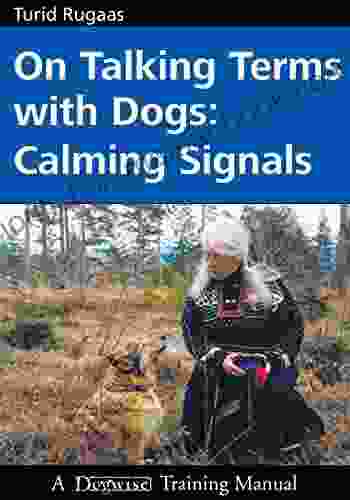
 Frank Butler
Frank ButlerOn Talking Terms With Dogs: Calming Signals and the...
For centuries, dogs have...

 Leo Tolstoy
Leo TolstoyThe Inside Guide to Applying and Succeeding in...
Applying to...
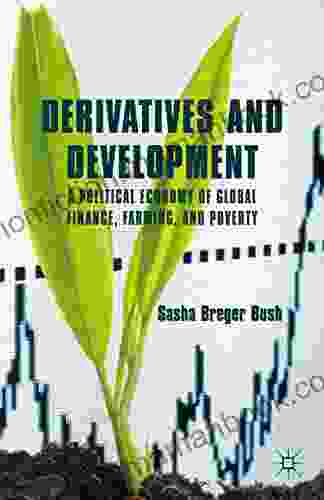
 Cole Powell
Cole PowellThe Political Economy of Global Finance, Farming and...
The global...
4.1 out of 5
| Language | : | English |
| File size | : | 1465 KB |
| Text-to-Speech | : | Enabled |
| Screen Reader | : | Supported |
| Enhanced typesetting | : | Enabled |
| Word Wise | : | Enabled |
| Print length | : | 75 pages |
| Lending | : | Enabled |


